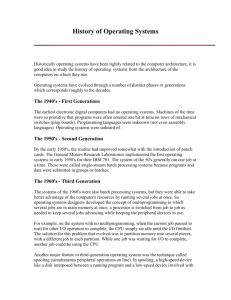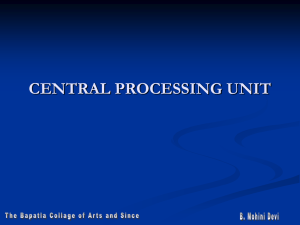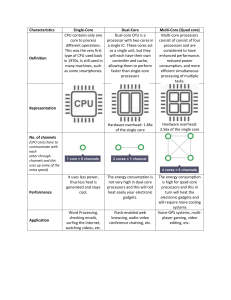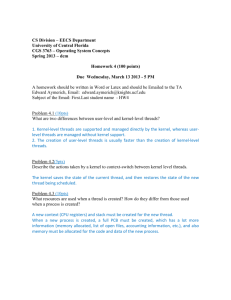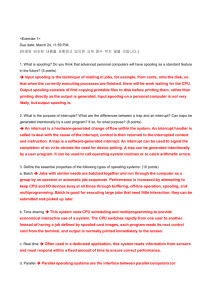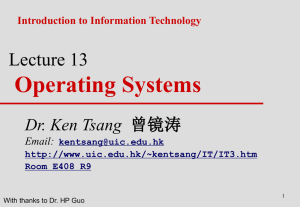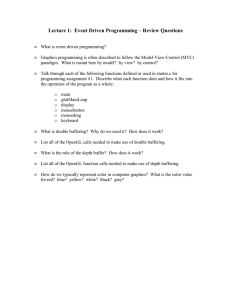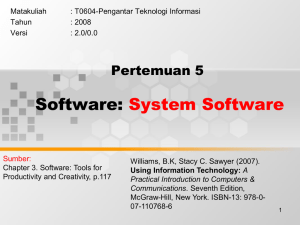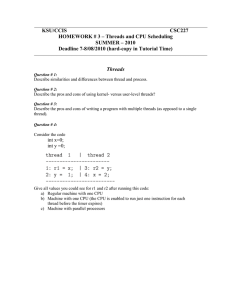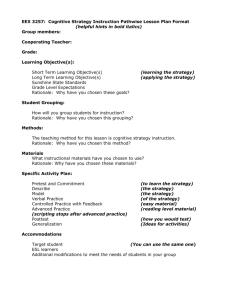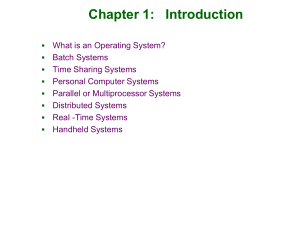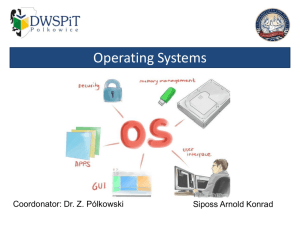Midterm 1.9
advertisement
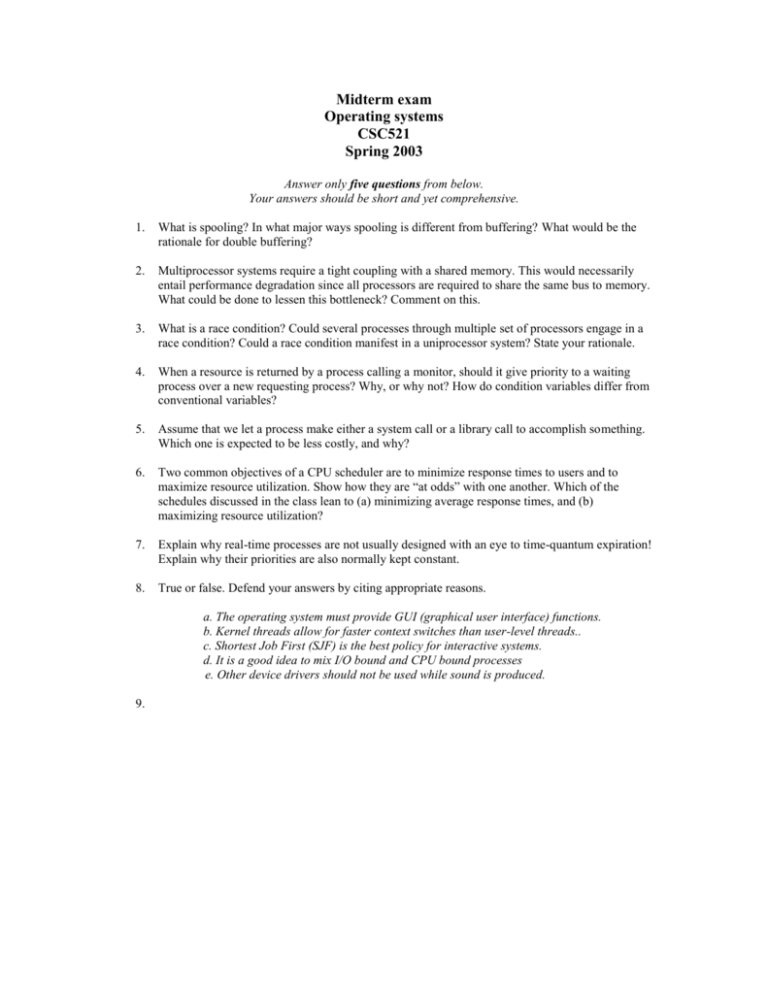
Midterm exam Operating systems CSC521 Spring 2003 Answer only five questions from below. Your answers should be short and yet comprehensive. 1. What is spooling? In what major ways spooling is different from buffering? What would be the rationale for double buffering? 2. Multiprocessor systems require a tight coupling with a shared memory. This would necessarily entail performance degradation since all processors are required to share the same bus to memory. What could be done to lessen this bottleneck? Comment on this. 3. What is a race condition? Could several processes through multiple set of processors engage in a race condition? Could a race condition manifest in a uniprocessor system? State your rationale. 4. When a resource is returned by a process calling a monitor, should it give priority to a waiting process over a new requesting process? Why, or why not? How do condition variables differ from conventional variables? 5. Assume that we let a process make either a system call or a library call to accomplish something. Which one is expected to be less costly, and why? 6. Two common objectives of a CPU scheduler are to minimize response times to users and to maximize resource utilization. Show how they are “at odds” with one another. Which of the schedules discussed in the class lean to (a) minimizing average response times, and (b) maximizing resource utilization? 7. Explain why real-time processes are not usually designed with an eye to time-quantum expiration! Explain why their priorities are also normally kept constant. 8. True or false. Defend your answers by citing appropriate reasons. a. The operating system must provide GUI (graphical user interface) functions. b. Kernel threads allow for faster context switches than user-level threads.. c. Shortest Job First (SJF) is the best policy for interactive systems. d. It is a good idea to mix I/O bound and CPU bound processes e. Other device drivers should not be used while sound is produced. 9.
